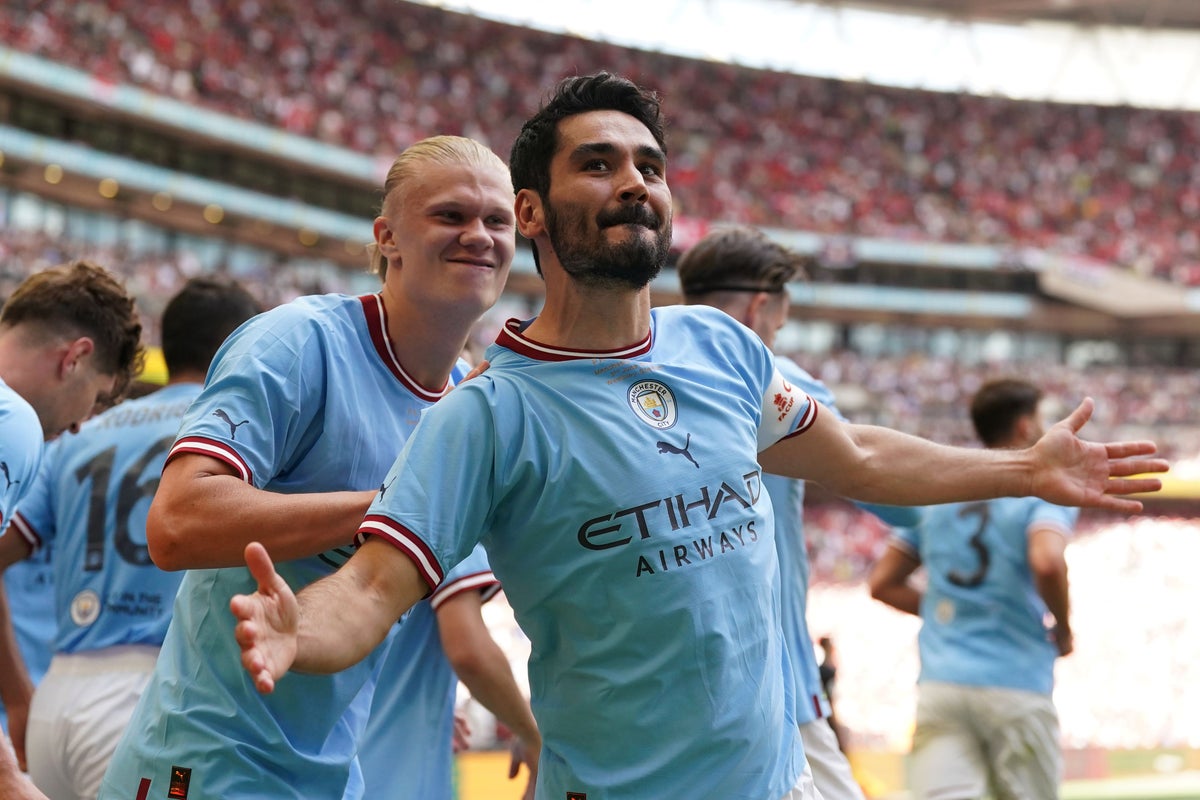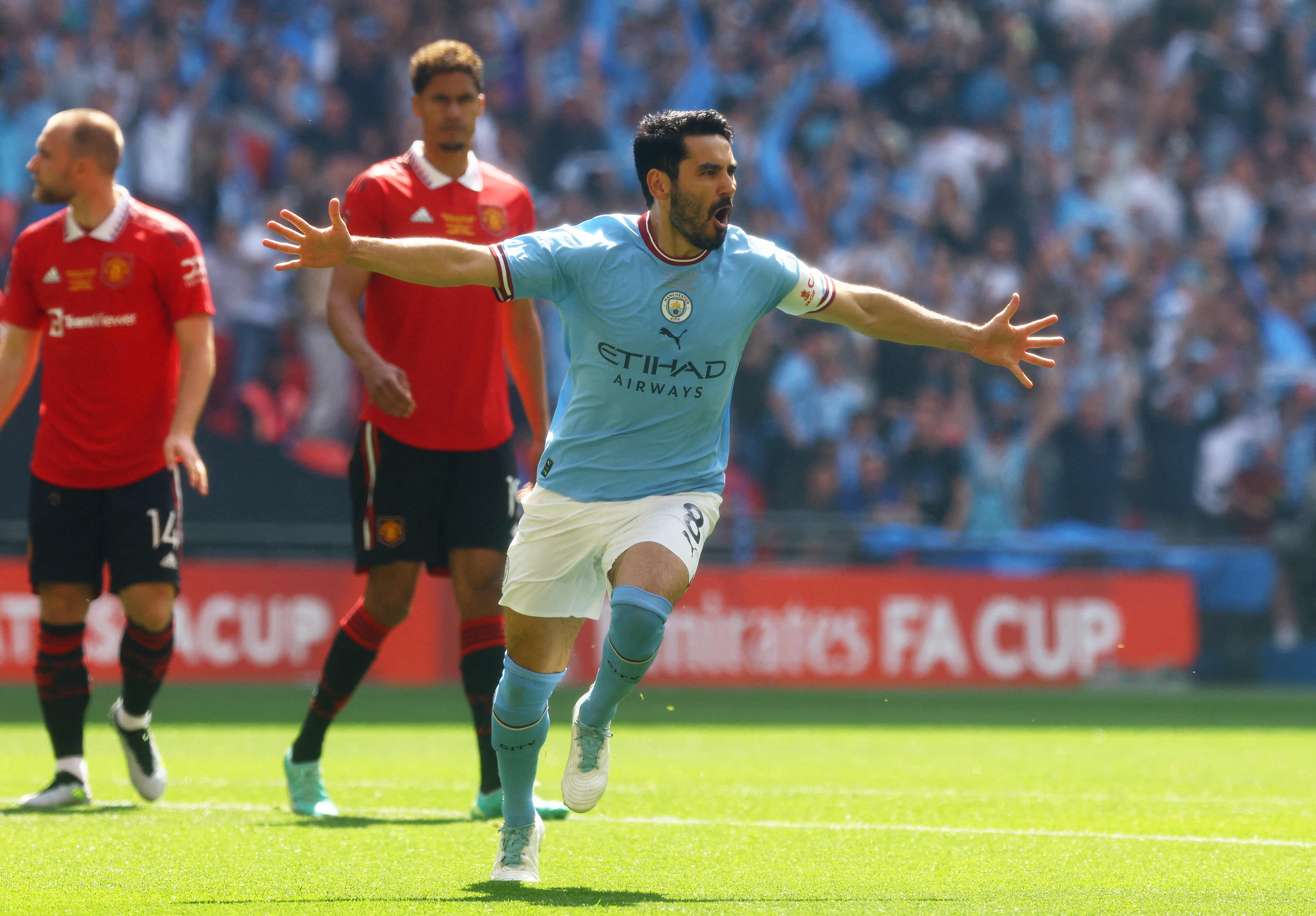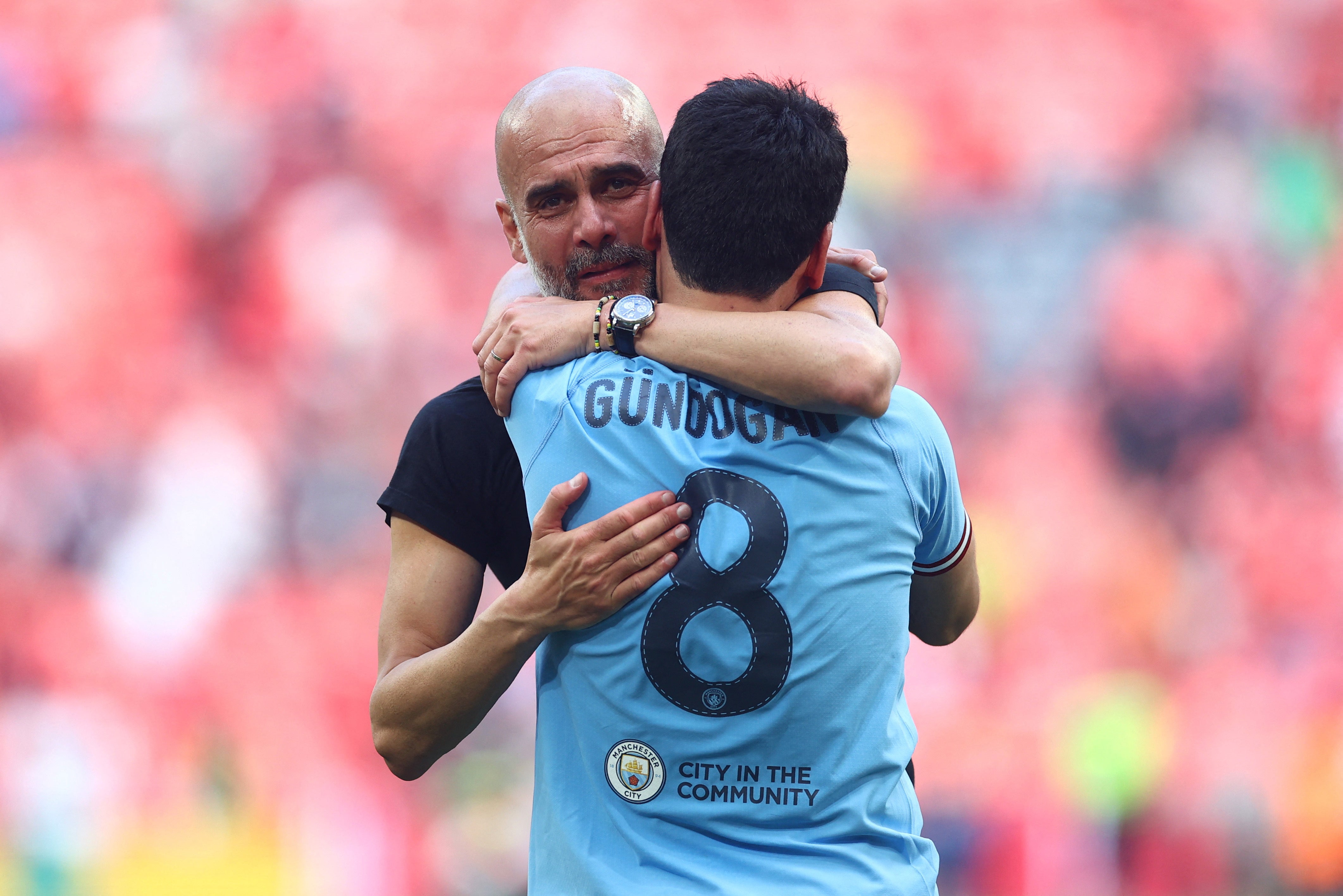
The previous time a Manchester City captain lifted the FA Cup it represented his perfect goodbye. Vincent Kompany announced his departure the following morning. He had spent the second half, he subsequently admitted, soaking it all in, surveying the fans, with victory against Watford long since assured.
As City, a game away from the treble, may make history, there is a way in which it might repeat itself. Partly, anyway. Once again, the captain is out of contract, wondering what comes next. This time, he has one more game, a Champions League final. And this time the skipper was not a spectator standing on the Wembley pitch. He was the match-winner.
He often is. When a season reaches its business end, the man City increasingly rely upon is Ilkay Gundogan, the nice guy with a tendency to finish first and, as his winning goals demonstrate, score last. He can trace two of a growing medal collection directly to his strikes; to his doubles, really, as a brace decided the Premier League on the final day of last season and another secured the FA Cup. The platform for this season’s league title was laid by Gundogan, his pairs of goals against Leeds and Everton demoralising Arsenal. No wonder Mikel Arteta wants to recruit him. If you can’t stop Gundogan, sign him.
On a landmark occasion, the first time both captains had scored in an FA Cup final, City found a curiously old-fashioned way of claiming a prize that dates back to 1872. There are places where the armband is simply given on grounds of seniority or longevity. In England, it can come with the expectation of inspirational leadership; the watching Sir Alex Ferguson had first Bryan Robson and then Roy Keane as warrior captains. The onlooking David Beckham’s greatest act in an England shirt was the 2001 free kick against Greece to send his country to the World Cup. The previous captain to deliver two FA Cup final goals in the No. 8 shirt was Steven Gerrard. Each had an element of Roy of the Rovers; so does Ilkay of the City.
Which, to rewind a few years, would have seemed surprising. Gundogan was the stylist: amiable, multilingual, injury-prone but scarcely appeared Kompany’s natural heir. But the reinvention of German reached its apotheosis in record-breaking time at Wembley. Gundogan may yet have a place in history alongside Keane as a treble-winning captain. He has secured a spot as the scorer of the quickest FA Cup final goal; he was the scourge of both the modern-day United and a former United striker, Louis Saha, whose 2009 goal for Everton is now merely the second quickest.
And 2009 had another relevance. Fourteen years after Ferguson said United would never go into a derby as underdogs in his lifetime, their outsiders were behind after 13 seconds. Often an elegant presence, Gundogan had an explosive impact. A crouching David de Gea watched a half-volley fly past him. The sedate technician has been converted into a dynamic, goalscoring force. Perhaps his innate calmness equips him for the big moments; he is both relaxed and ruthless.

His second had an oddity. There are few purer strikers of a ball than Gundogan but his left shin sufficed, meeting Kevin De Bruyne’s free kick to find De Gea wanting. Few can score from 20 yards in an FA Cup final, fewer still with each foot – or leg – in arguably the biggest Manchester derby of all. But for an offside flag, he would have had a hat-trick.
And yet City’s methods felt instructive. The opener stemmed from route one, from Stefan Ortega’s punt forward and Victor Lindelof’s header, as well as Gundogan’s more advanced role. The German can hang around Erling Haaland, looking for the flick-ons and knockdowns. This, instead, was a second ball, the sort of thing Pep Guardiola rarely had to consider when his Barcelona side monopolised possession.
He was unmarked for his second goal. As subsequent corners suggested, it was as though City had spotted a flaw in United’s set-piece marking and realised there was space on the edge of the box. Guardiola directed Gundogan to lurk their, leaving one of his best goalscorers outside the penalty area, where he could do most damage.

But City’s goals came not from intricate passing moves but from a long ball and a set-piece: Guardiola’s mutation into the Catalan Sam Allardyce is complete. Admittedly there are times this season, when Manchester City’s back four has comprised of four centre-backs, when he might have been more of a Spanish Tony Pulis.
He had emerged from the tunnel in a hoodie, apparently dressed as a teenager. Erik ten Hag turned up dressed instead like Sean Dyche, a business-like figure in dark suit and white shirt. But like Dyche’s Everton, his United were defeated by a Gundogan double. He had a second trophy to lift. He is one game away from completing City’s greatest season as their greatest captain. And maybe taking his leave. It would seem odd, but in his own way Ilkay Gundogan has become City’s master of perfect timing.







